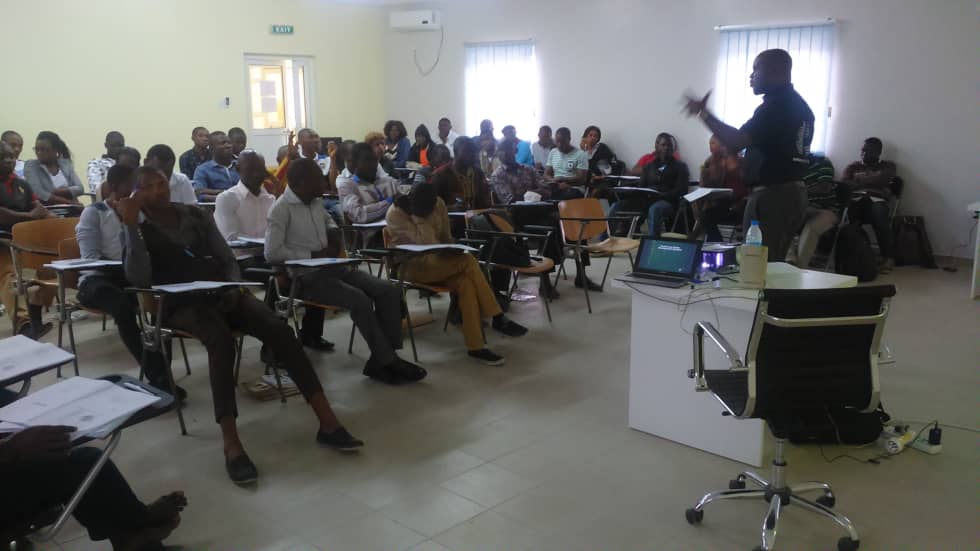Certification exams are essential for career growth and professional development. Whether you’re aiming for an IT certification, project management credential, or any other specialized qualification, effective preparation is key. In this article, we’ll explore strategies to help you succeed in your certification journey.
Understand the Certification’s Requirements
- The first step in your preparation journey is to visit the certification provider’s official website. This site is a treasure trove of information, outlining all the requirements, prerequisites, and details about the certification process.
- Carefully review the eligibility criteria. Certifications often have specific educational or professional experience requirements that you must meet. For instance, some IT certifications may require a certain number of years of experience in the field, while others might necessitate prior completion of related certifications or courses.
- Registration and Fees: Familiarize yourself with the registration process, including important deadlines and fees. Ensure you understand the costs involved and budget accordingly. Knowing the registration timeline will also help you schedule your study plan to ensure you are ready by the exam date.
- Identify any prerequisite courses or certifications. Some certifications require you to complete foundational exams before attempting more advanced ones. Make sure you understand these prerequisites to avoid any surprises later in your preparation.
Understand the Exam Format and Objectives
Before you start studying, take the time to thoroughly understand the exam format and objectives:
- Review the Official Exam Guide: Visit the certification provider’s official website and locate the exam page. Read through the exam guide, which provides essential details about the test structure, passing score, and prerequisites.
- Pay Attention to Question Types: Understand the different question types (multiple-choice, scenario-based, etc.) and how they are weighted. This knowledge will guide your study approach.
- Updates and Changes: Certification exams and their requirements can change over time. Stay updated by frequently checking the website for any announcements or updates related to the exam. Subscribe to newsletters or alerts if available, so you don’t miss any critical information.
Utilize Third-Party Training Resources
Most Certification bodies maintain a list of Authorized Training Providers. However, candidates are typically allowed to take preparatory courses from providers not on this list or even pursue self-study for the exams. This flexibility allows individuals to choose the resources that best suit their learning preferences and schedules.
Third-party training resources can offer valuable support and additional perspectives to enhance your preparation.
- Online Courses and Tutorials: Numerous platforms, such as Coursera, Udemy, LinkedIn Learning, and local training providers in your area offer courses specifically designed to help candidates prepare for various certification exams. These courses often include video lectures, interactive quizzes, and hands-on projects that can deepen your understanding of the material.
- Third-party providers also often offer practice exams and extensive question banks that mimic the format and difficulty level of the actual exam. Regularly testing yourself with these practice questions can help identify areas where you need further study and build your confidence.
Create a Study Plan
In addition to incorporating third-party training resources into your study plan, it is important to also study personally. Many certification providers offer official study materials, practice tests, and other resources to help candidates prepare. Take note of these resources and consider incorporating them into your study regimen. A well-structured study plan keeps you on track:
- Set a Timeline: Start preparing at least six months before the exam date. Allocate time for each topic.
- Study Materials and Resources: Many certification providers offer official study materials, practice tests, and other resources to help candidates prepare. Take note of these resources and consider incorporating them into your study regimen.
- Study Sessions: Regularity matters. Schedule study sessions and avoid last-minute cramming.
Hands-On Practice Is Crucial
Theoretical knowledge alone won’t cut it. Here’s why hands-on practice matters:
- Use the Technology: If your certification involves a specific technology (e.g., cloud platforms, networking equipment, programming languages), get hands-on experience. Set up labs, work on projects, and troubleshoot real-world scenarios.
- Real-World Context: Certifications hold more value when they certify individuals who have practical experience. Employers appreciate candidates who can apply their knowledge in real-world situations.
Utilize Practice Exams
Practice exams are invaluable for gauging your readiness:
- Simulate the Exam Environment: Take practice tests that mimic the actual exam conditions. These help you get comfortable with the interface and time constraints.
- Analyze Your Performance: Review your practice exam results. Identify weak areas and focus on improving them.

Test-Taking Tips
When you’re in the exam room, keep these tips in mind:
- Read Carefully: Understand each question before selecting an answer. Pay attention to keywords and context.
- Time Management: Don’t get stuck on a single question. Allocate time wisely.
- Process of Elimination: Eliminate obviously incorrect answers first, then choose the best option from the remaining choices.
During the Exam:
- Allocate Time Wisely: Read the instructions and understand the time limit for the exam. Divide your time among different sections based on their weightage.
- Flag and Move On: If you’re stuck on a question, flag it and move forward. Don’t spend too much time on a single item.
- Read Carefully: Understand each question thoroughly. Pay attention to keywords (e.g., “not,” “always,” “except”) that significantly impact the answer.
- Process of Elimination: Eliminate obviously incorrect options. Narrow down your choices.
- Analyze the Scenario: For scenario-based questions, understand the context. What’s the problem? What’s the desired outcome?
- Apply Your Knowledge: Use your practical experience and theoretical understanding to choose the best solution.
- Review Your Answers: If time permits, revisit flagged questions. Double-check your responses.
- Avoid Last-Minute Changes: Trust your initial instincts unless you’re sure of an error.
- Positive Mindset: Believe in your preparation. Stay calm even if you encounter challenging questions.
- Don’t Panic: If you don’t know an answer, move on. Stressing won’t help.
Remember, certification exams validate your expertise. Invest time, stay focused, and approach the exam with confidence. Good luck on your certification journey!








